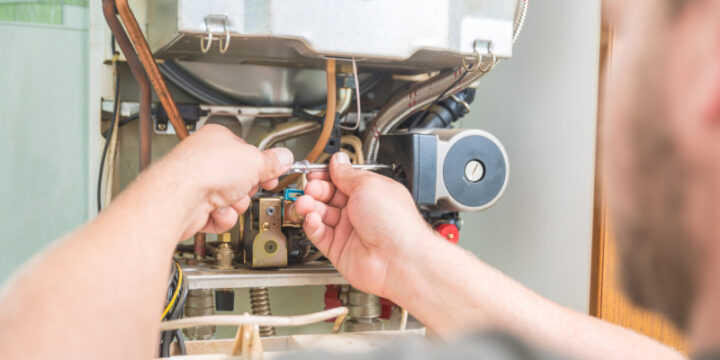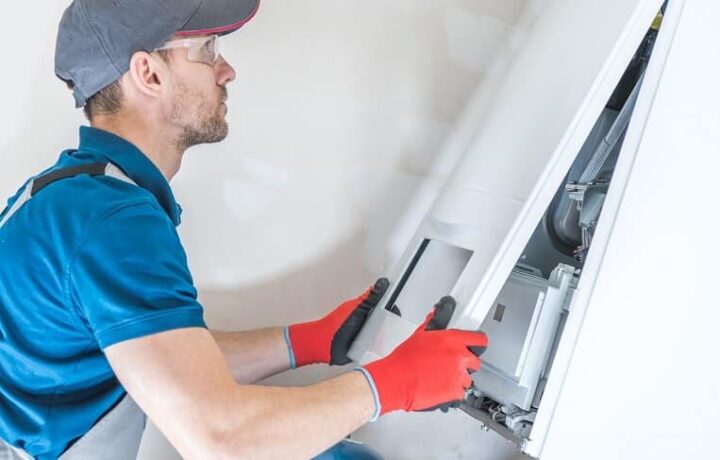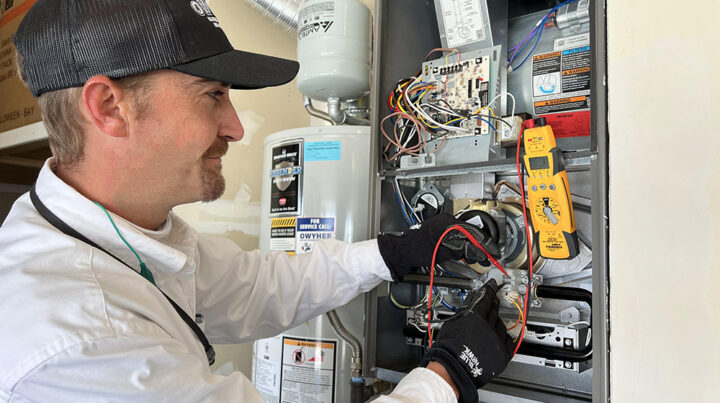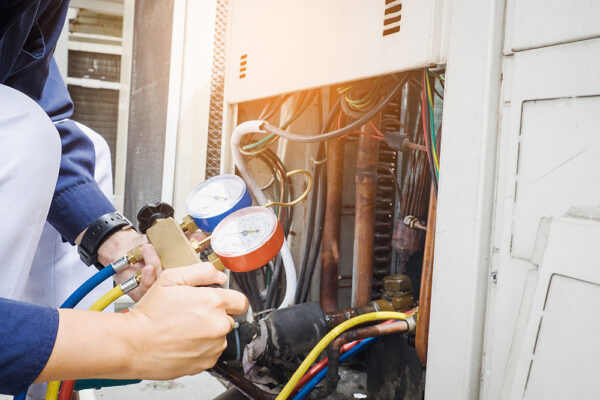A furnace tune-up is carried out at least once a year, preferably before the start of the winter season. It entails deep cleaning the furnace, checking and replacing the air filter, and examining different parts of the furnace for wear and tear.
When carrying out this task, trained professionals identify and fix minor issues before they turn into costly repairs. Here are reasons to schedule the task regularly.
Restores Efficiency
A dirty furnace or one with worn-out parts has to work harder to generate the same amount of heat as a well-maintained one. This not only puts unnecessary strain on different parts, which cause them to break down but also increases your energy bills. A tune-up ensures that your furnace is clean and running at peak performance.
Besides, it takes less time to warm the desired space evenly. Visit Morris Jenkins to schedule a tune-up. During the exercise, let the expert know if you’ve been experiencing any problems, such as increased utility bills, strange smells, and noises.
Prolongs the Life of Your Furnace

Like any other mechanical system, a furnace has different parts that eventually wear out and require replacement. However, regular tune-ups prolong the life of your furnace by keeping all the parts in good condition. The professional will also identify worn-out parts and replace them before they cause a complete breakdown.
In most cases, people only realize the importance of tune-ups when it’s too late and their furnace needs complete replacement. Tune-ups increase the unit’s lifespan and prevent up to 95% of potential breakdowns.
Reduces Repair Costs
Although a tune-up may cost something, it’s incomparable to the money you’ll spend on repairs or replacements when your furnace fails. Catching and fixing minor issues is cheaper than waiting until the problem causes significant damage. It’s also cheaper to maintain one furnace for a long time than to keep buying new ones.
As you will realize, lack of maintenance causes most furnace issues. They include a cracked heat exchanger, failed blower motor, and a clogged burner. These problems reduce efficiency and pose a safety risk to your family.
Improves Indoor Air Quality
Your furnace has a blower that distributes heat throughout the house and moves air around. This movement filters out dust and other airborne particles. However, a dirty or clogged furnace filter will prevent the blower from doing its job efficiently, leading to a buildup of contaminants in your indoor space.
A tune-up will clean the furnace and replace the filter, improving indoor air quality. Dirty vents and ductwork can also lead to poor indoor air quality. The professional carrying out the tune-up will also clean them. Remember to change the filters every three months. Invest in HEPA or electronic air filters to further improve your indoor air quality.
Ensures Safety
A tune-up ensures that your furnace is safe for use. The professional will examine different parts, looking for signs of wear and tear. Worn-out parts pose a safety risk as they can cause fires and explosions.
The technician will also check the furnace’s ventilation if it’s blocked. A blocked vent prevents the furnace from releasing toxic gases like carbon monoxide outside the house. These gases build up to dangerous levels and cause health problems such as headaches, dizziness, and nausea. In extreme cases, they cause death.

Reduced Energy Bills
A well-maintained unit can lower power consumption by up to 30%, saving money on utility bills. The energy savings will eventually offset the cost of the tune-up. Not forgetting, you protect the environment from harmful emissions. Besides, a unit that lasts longer reduces the amount of waste sent to landfills.
Dependable Heating
Imagine not worrying about your furnace breaking down in the middle of winter. That’s the peace of mind you get when you know your furnace is in good condition. You don’t have to worry about uneven heating, cold spots, or the furnace shutting down when you need it. Because the unit lasts longer, you also don’t have the stress of emergency replacements when it breaks down, requiring a replacement.
Protect The Warranty
Manufacturers’ warranties often require proof of regular maintenance, including tune-ups, to remain valid. If something goes wrong and your warranty is void, you’ll have to pay for all repairs and replacements. Follow the recommended maintenance schedule.
Protects Your Investments
Your entire property, including the fixtures and structures, depends on the furnace for warmth. Pipes freeze and burst when the furnace breaks down. Walls, ceilings, and floors may crack due to the expansion and contraction that results from temperature changes.
You might also experience water damage due to leaking pipes. These problems are costly to repair, and some, like cracked walls and floors, may be irreversible. Regular tune-ups will prevent all these problems, preserving the value of your investments.

How Long Does the Exercise Take?
A furnace tune-up might take an hour or longer, depending on the condition of the unit. If your unit requires repairs, it might take longer. The time frame also depends on the age of your furnace. New furnaces usually take less time to tune up than older models.
Create ample time in your schedule to avoid disruptions. You can take care of other tasks or relax while the professional works on your furnace. After the tune-up, here’s what to do to maintain the unit until the next scheduled maintenance:
- Check the furnace’s filter monthly and clean or replace it when necessary
- Keep the area around the furnace clean and free of clutter
- Inspect the furnace’s ventilation regularly to ensure it’s not blocked
- Test the furnace’s safety features monthly to ensure they work properly
- Check the thermostat regularly and adjust it when necessary
- Check the carbon and smoke detectors monthly and replace the batteries when necessary
- Call a professional immediately if you detect issues
Scheduling a Tune-up is Easy and Convenient
Most furnace manufacturers recommend scheduling a tune-up once a year, typically in the fall, before winter sets in. However, you may need to schedule more tune-ups if you have an older furnace.
Some companies offer annual maintenance plans that make keeping your furnace in good condition easy and convenient. The plan covers tune-ups, repairs, and replacements, among other things. Check with your furnace manufacturer or a local HVAC company to find out about annual maintenance plans in your area.




